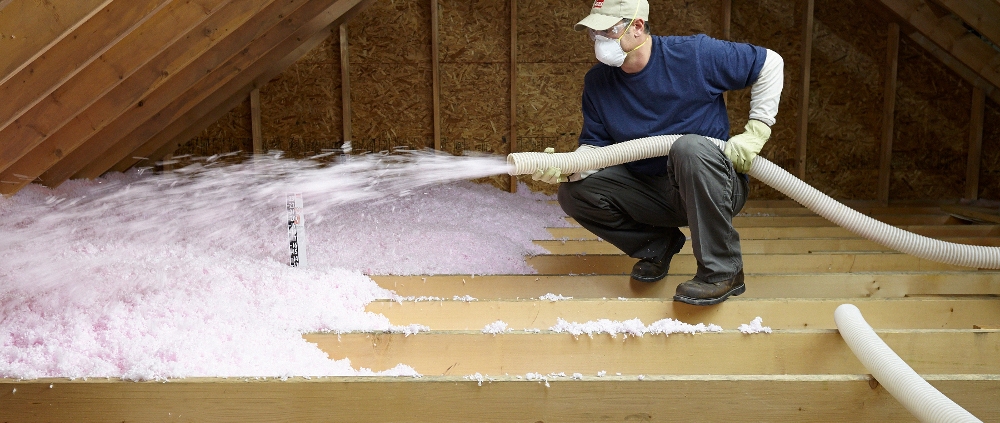Insulating your home is not just about staying warm in winter and cool in summer; it’s also about energy efficiency and cost savings. Affordable insulation services offer a range of solutions that can make your home more comfortable while reducing your energy bills. This article explores the importance of insulation, different types of insulation available, considerations for choosing affordable services, and tips for maximizing insulation benefits.
Why Insulation Matters
Insulation is a critical component of your home’s thermal envelope, which helps regulate indoor temperature by reducing heat transfer between the interior and exterior. Here are key reasons why insulation matters:
- Energy Efficiency: Proper insulation reduces the need for heating and cooling, lowering energy consumption and utility bills.
- Comfort: Insulation helps maintain consistent indoor temperatures year-round, enhancing comfort for occupants.
- Soundproofing: Insulation can also reduce noise transmission between rooms and from outside, creating a quieter living environment.
- Environmental Impact: Reduced energy consumption means lower greenhouse gas emissions associated with heating and cooling systems.
Types of Insulation
There are several types of insulation materials used in residential and commercial buildings. Each type has unique characteristics and advantages:
- Fiberglass Insulation: Made from fine glass fibers, fiberglass insulation is cost-effective and widely used for its thermal resistance properties. It comes in batts, rolls, or loose-fill forms.
- Spray Foam Insulation: This type of insulation expands upon application, filling gaps and cracks to create an airtight seal. It provides excellent thermal resistance but tends to be more expensive than other types.
- Cellulose Insulation: Made from recycled paper or cardboard treated with fire retardants, cellulose insulation is eco-friendly and effective at reducing air leakage.
- Mineral Wool Insulation: Composed of recycled materials like stone or slag, mineral wool is fire-resistant and provides soundproofing in addition to thermal insulation.
- Reflective or Radiant Barrier Insulation: Reflective insulation uses foil-faced materials to reflect radiant heat away from living spaces, making it ideal for attics or roofs.
Considerations for Affordable Insulation Services
When selecting affordable insulation services for your home, consider the following factors to ensure quality and cost-effectiveness:
1. Energy Audit
Before choosing insulation, conduct an energy audit to identify areas of energy loss and prioritize insulation upgrades accordingly. Many utility companies offer free or subsidized energy audits to help homeowners make informed decisions.
2. R-Value
Understand the concept of R-value, which measures the resistance of insulation to heat flow. Higher R-values indicate greater insulating effectiveness. Choose insulation materials with appropriate R-values for your climate zone and specific application.
3. Insulation Location
Different areas of your home may require different types of insulation. For example, attic insulation may differ from wall or basement insulation. Ensure that the insulation service provider offers solutions tailored to each area’s unique requirements.
4. Installation Quality
Proper installation is crucial for insulation effectiveness. Hire licensed and experienced contractors who follow industry standards and manufacturer guidelines for installation. Improper installation can lead to reduced insulation performance and higher energy costs.
5. Cost-Benefit Analysis
Compare quotes from multiple insulation service providers and consider the long-term benefits of energy savings and increased home comfort. Look for rebates, incentives, or financing options that can offset initial costs.
Maximizing Insulation Benefits
To maximize the benefits of affordable insulation services, consider the following tips:
- Seal Air Leaks: Before adding insulation, seal gaps and cracks around windows, doors, and electrical outlets to prevent air leakage, which can reduce the effectiveness of insulation.
- Choose Sustainable Materials: Opt for insulation materials with high recycled content or those that are recyclable at the end of their lifespan to minimize environmental impact.
- Combine Insulation Types: In some cases, combining different types of insulation (e.g., fiberglass batts with spray foam) can optimize energy efficiency and cost-effectiveness.
- Maintain Insulation: Regularly inspect insulation for signs of damage or compression and address issues promptly to maintain its effectiveness over time.
- Consider DIY Options: Depending on your skills and comfort level, some insulation projects, such as adding attic insulation, may be suitable for DIY installation, potentially reducing labor costs.
Affordable Insulation Services Providers
Finding reliable and affordable insulation services providers involves research and careful consideration:
- Local Recommendations: Ask friends, family, or neighbors for recommendations based on their experiences with insulation contractors.
- Online Reviews: Check online review platforms like Google, Yelp, or Angie’s List for customer feedback and ratings on insulation service providers.
- Credentials and Certifications: Verify that the contractor is licensed, insured, and certified by reputable organizations such as the Insulation Contractors Association of America (ICAA) or the Building Performance Institute (BPI).
- Estimates and Proposals: Obtain detailed estimates and proposals from multiple contractors, ensuring they include the scope of work, materials used, labor costs, and any applicable warranties.
Conclusion
Investing in affordable insulation services is a smart decision that improves your home’s energy efficiency, comfort, and value. By understanding the benefits of insulation, exploring different types of insulation materials, and following guidelines for choosing affordable services, homeowners can make informed decisions that yield long-term savings and environmental benefits. Whether you’re retrofitting existing insulation or planning new construction, consulting with professional insulation contractors ensures quality installation and optimal performance of your insulation system for years to come.

